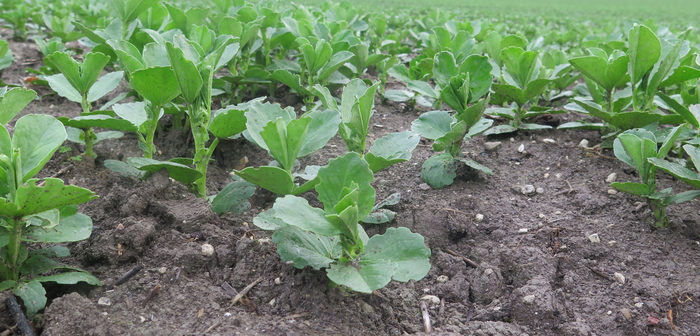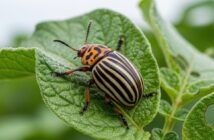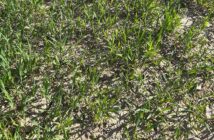The project is inviting UK pea and bean growers to conduct paid, on-farm trials to contribute.
NCS aims to increase pulse cropping in the UK from 5% to 20% within arable rotations, displacing up to half of the imported soya meal currently used in livestock rations.
At least 40 farmers will be recruited, with the first contracts for work already signed.
Tom Allen-Stevens, founder of the British On-Farm Innovation Network (BOFIN) is leading the trials work. “We are looking for farmers who are growing, or plan to grow, beans or peas this season and who are growing them in the rotation for the next four years,” he said.
“We will offer support and payment for them to monitor the crop. In particular, we want to compare an area grown to pulses with one that isn’t over a period of four years. This rotational platform approach will enable us to monitor the benefits of pulse crops through the rotation.”
 One of the first farmers to commit is Will Oliver, National Arable and Grassland Awards Cereal Grower of the Year 2022, who said: “Pulses are really important to us because we’re not growing oilseed rape anymore. They’re our break crop with an early entry – in most years – and good for the ground as well. “They provide a nitrogen and organic matter boost. Just having to use less bagged fertiliser in general is a positive.”
One of the first farmers to commit is Will Oliver, National Arable and Grassland Awards Cereal Grower of the Year 2022, who said: “Pulses are really important to us because we’re not growing oilseed rape anymore. They’re our break crop with an early entry – in most years – and good for the ground as well. “They provide a nitrogen and organic matter boost. Just having to use less bagged fertiliser in general is a positive.”
He first heard about the project late last year and decided to improve his understanding of the potential beans have in the UK.
“I just think beans have never really had as much research into them as they deserve,” he said. “Maybe if we can fine-tune how we grow them a bit, tweak varieties perhaps, we might be able to get a bit more out of them.”
Will’s winter beans usually return between three to four tonnes per hectare, with an average of 4.2 tonnes. However, he said that it is not about yield.
“People tend to call profit what you actually get in your bank at the end,” he said. “But then you can say, right, our soils are in good condition, and we’re saving a pass on our wheat establishment.
“So sometimes you’ve just got to look away from the money side of things and see what else it brings to the rotation, especially in this current climate.”
He added that he was still looking at the options for trials within the project. “I’d like to include a trial I’m planning of QLF boost (a liquid carbon-based fertiliser). I, will probably do tramline trials spreading a molasses product. We’ve had quite good results with maize and wheat, so it’d be interesting to see where beans come in on that.
“I’m just interested in how we can grow a crop better and be a bit more efficient, and the monitoring I’ll be doing as a pulse pioneer will help understanding.”
Pea and bean crops put forward by the growers in the project will be entered into the ADAS Pulse Yen, providing detailed feedback on how the crop has performed throughout the season, as well as an analysis of yield.
Aims of the NSC project include reducing emissions by 1.5Mt CO₂e per annum (or 54% of the maximum potential for UK agriculture), which can be achieved by replacing soya.
For more information, or to get involved go to www.ncsproject.co.uk




